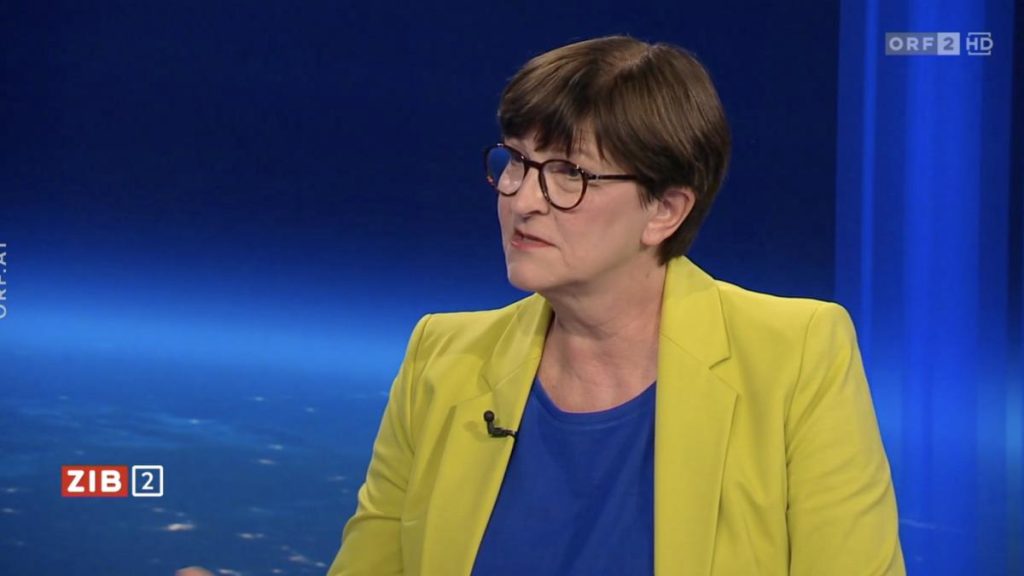SPD leader Saskia Esken made controversial statements during an interview on an Austrian news program, comparing Germany’s right-wing party AfD to Nazi propaganda minister Joseph Goebbels. She emphasized the need to combat the party by not allowing them to undermine democracy. When asked if she was comparing AfD to Goebbels, she affirmed, stating that AfD is a “Nazi party” with völkisch tendencies and a desire to undermine democracy. Esken highlighted the party’s harmful attitudes towards various societal groups as serious threats to democracy that must be addressed.
In response to Esken’s statements, interview moderator Armin Wolf challenged her, pointing out that AfD members do not openly propose building concentration camps or abolishing democracy. Esken stood by her belief that AfD has anti-constitutional intentions aimed at destroying democracy. She emphasized the importance of engaging in substantive discussions with AfD and exposing their true motivations and affiliations. Esken criticized AfD for being a party of the elite, committing economic folly through advocating for leaving the EU and expelling immigrants, contrary to their claims of representing ordinary workers and people.
Esken suggested that besides political opposition, legal measures should also be taken against AfD. She proposed cutting off their financial resources and revealing any ties the party may have to banned organizations. Esken mentioned the possibility of pursuing a party ban if the Federal Office for the Protection of the Constitution confirms AfD’s anti-constitutional activities. She acknowledged the challenges faced by the SPD in forming governments in states like Saxony, Thuringia, and Brandenburg without aligning with AfD. Esken reiterated her party’s refusal to cooperate with AfD, acknowledging potential differing opinions within her party on the matter.
The SPD leader expressed concern over the party’s declining popularity in recent polls, especially in comparison to the AfD. She attributed this to various societal crises, such as the COVID-19 pandemic and the conflict in Ukraine, as well as ongoing transformations like the shift towards climate neutrality. Esken argued that these uncertainties create fertile ground for AfD’s simplistic solutions and scapegoating tactics to attract support. Despite the challenging political landscape, Esken remains determined to combat AfD’s ideology and protect democracy, even if it means facing internal party tensions and public skepticism about the SPD’s future.















